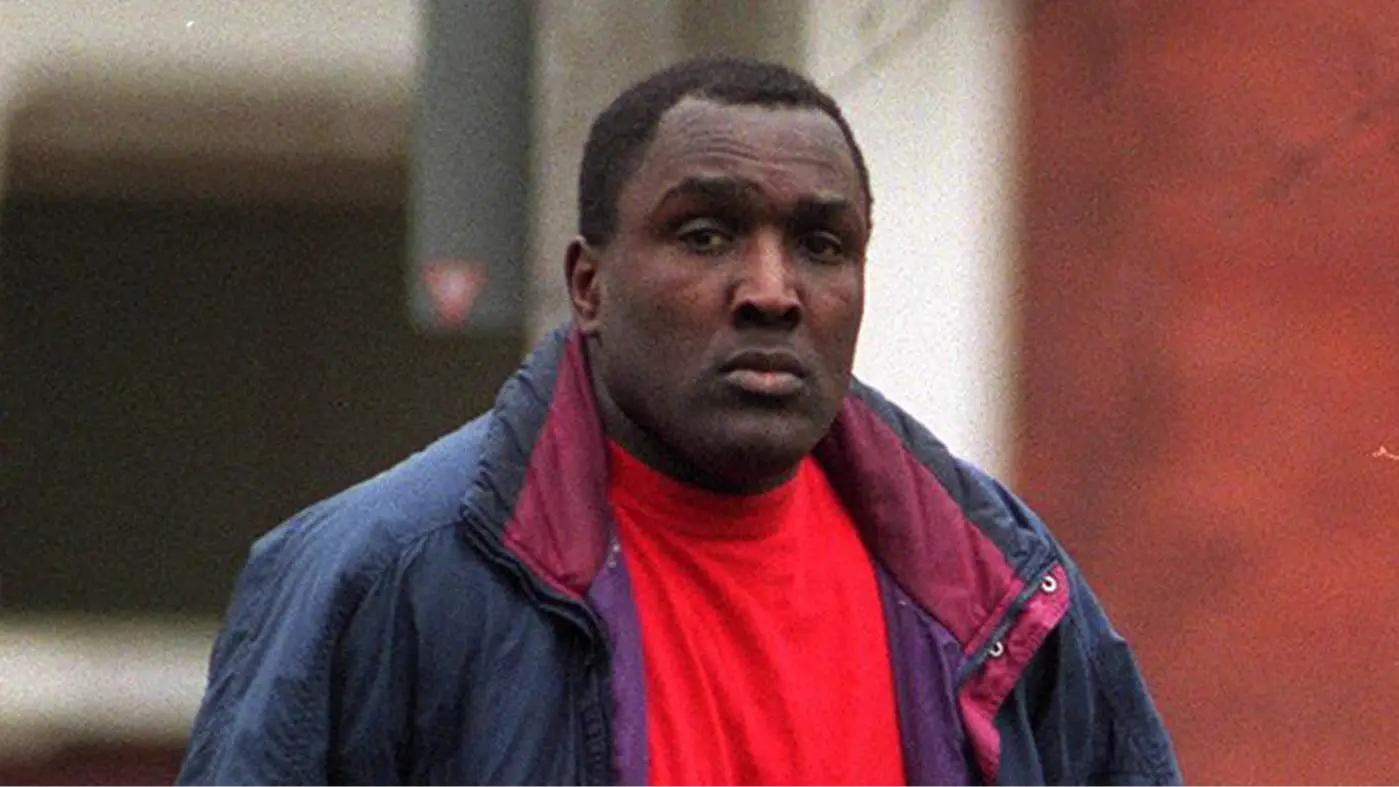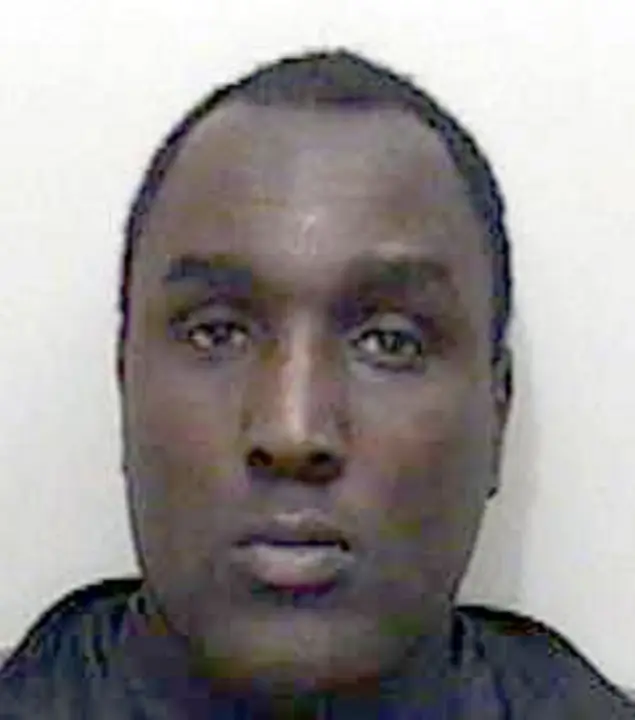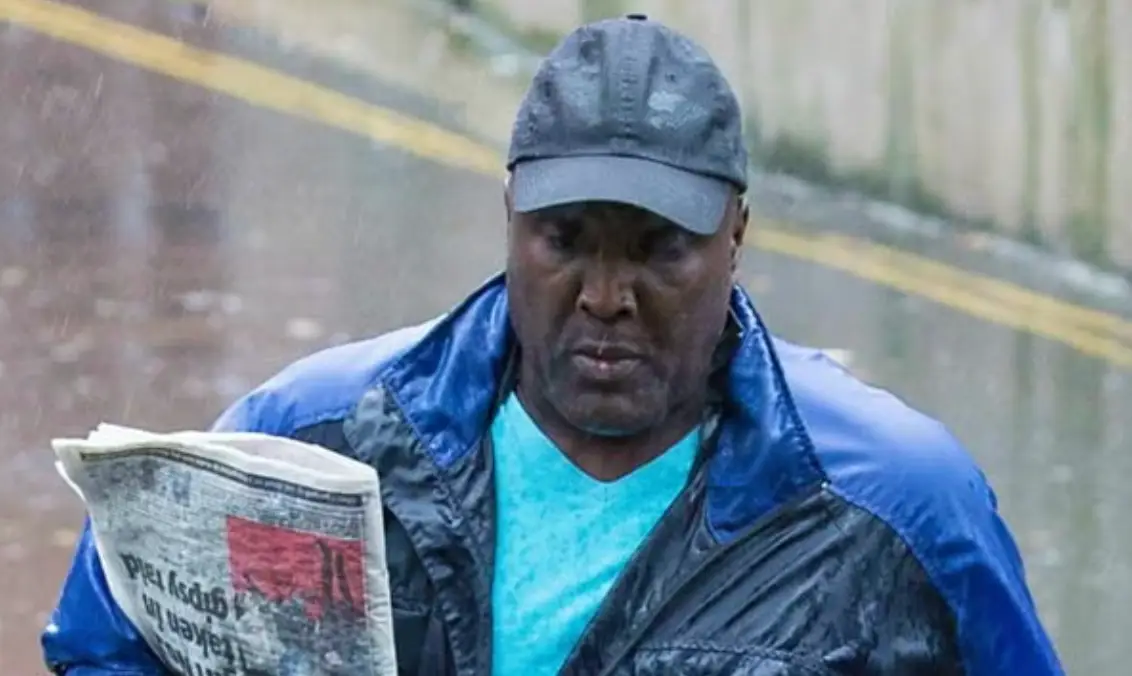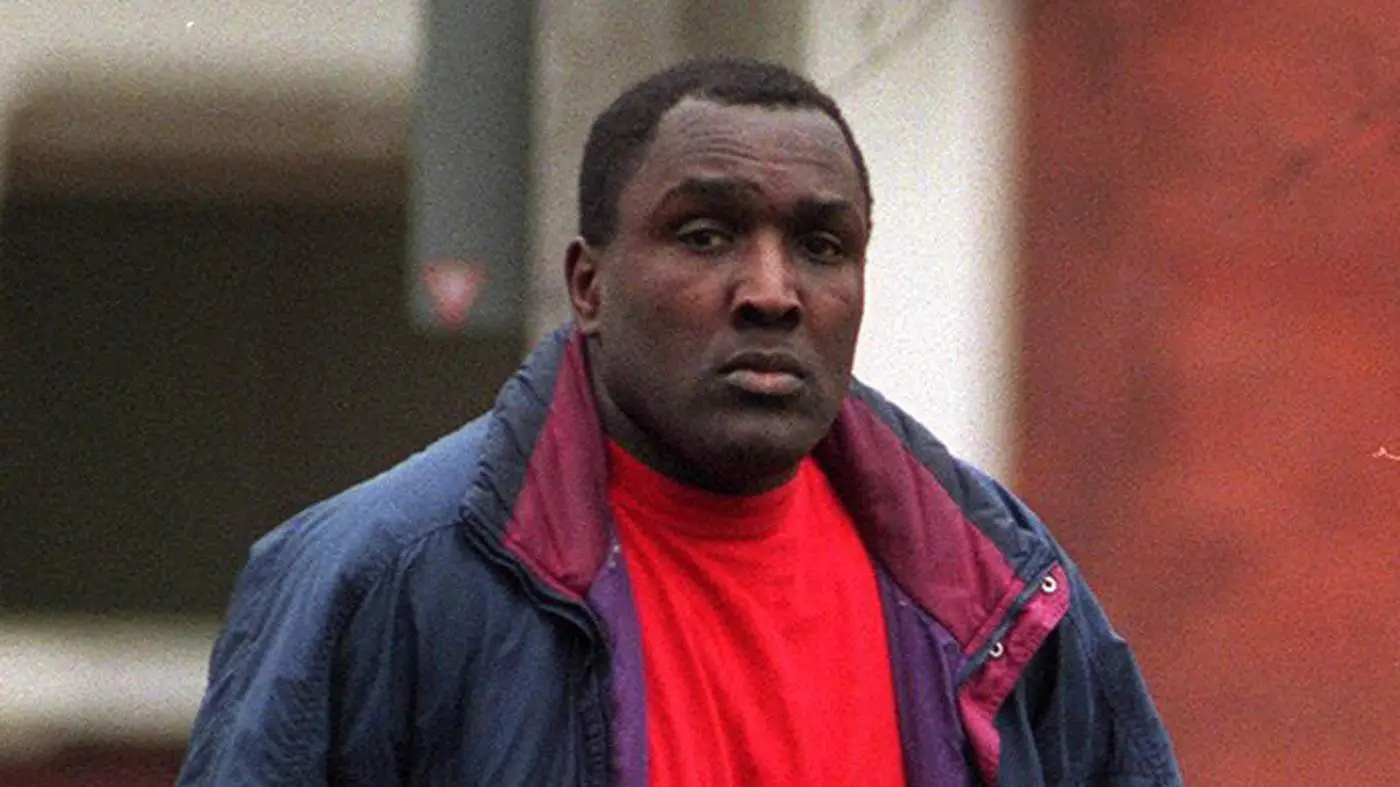
Akinwale Arobieke died earlier this week (26 August) at his home in Liverpool, but in the years leading up to his death, the 64-year-old became somewhat of an 'urban myth'.
The bodybuilder, who was regularly compared to a 'modern-day bogeyman,' became a household name when he became the first person in the UK to officially be banned from touching people's muscles in 2006.
However, the 6ft 5 gym fanatic had already earned an infamous name for himself in the north west, following a series of allegations that eventually saw him locked behind bars in 2003.
Arobieke, who was the subject of a 2016 BBC documentary titled The Man Who Squeezes Muscles, always maintained he had been the victim of a witch hunt by police and called out the offensive nickname he became known for, branding it a racial slur.
Advert

Gary Kelly's death
People living in the north west in the 1970s and 80s spoke of rumours about a man who would linger around gyms and ask young men if he could feel their muscles, but most people simply assumed this was a bizarre urban myth.
However, Arobieke achieved notoriety in 1986 following the tragic death of Gary Kelly, a 16-year-old-boy who was approached by the bodybuilder.
A court heard how the teen spent four months living in fear after Arobieke stalked him and threatened to kill him. On 15 June of that year, Kelly and his friends had been swimming in New Brighton when they spotted Arobieke, prompting the teen to flee to the nearby train station.
After hiding in a stationary train, Kelly jumped onto the tracks after spotting the man standing watching him on the platform. Tragically, he landed on a live rail and was electrocuted, passing away from his injuries. His girlfriend was three months pregnant with his daughter at the time.
Arobieke was convicted of involuntary manslaughter, however, the conviction was later overturned following an appeal.

Stalking rugby stars
Around a decade later, a news story was published about a 'giant' who had allegedly been stalking rugby Super League stars, attacking their homes, vandalising their cars and pretending to be a journalist to gain access into sports grounds.
"Top Rugby League clubs were last night on full security alert after a giant stalker launched a campaign against young players," the Sunday People article said.
"Strapping stars at Warrington Wolves and Oldham Bears are living in fear of 6ft 5in bodybuilder Akinwale Arobieke."
Merseyside Police later launched an investigation into Arobieke and heard from witnesses who claimed the bodybuilder would approach young men and 'ask to feel their muscles,' as well as using 'a tape measure to measure their calves, thighs and chest.'
Banned from touching muscles

In 2001, he was charged with 50 counts of indecent assault and harassment against 14 teenage boys dating from 1995 to 2000. He pleaded not guilty, however, was later convicted over a separate accusation of making threats to kill. He spent 30 months in prison and was later sentenced to a further six years after pleading guilty to 15 counts of harassment.
When he was eventually released from prison in 2006, a Sexual Offences Prevention Order (SOPO) was put in place, despite him never having been convicted of any sexual crimes. The order banned him from feeling people's muscles or attending gyms and sports clubs. He was also banned from talking to anyone under the age of 18 or entering a school without permission.
He was jailed once again in 2009 and 2010 for breaching the order and was cleared of breaching the order in 2013, when he was accused of squeezing muscles in Bolton, Trafford and Manchester city centre.
Despite the long history of offences, Arobieke told a court he had been a victim of a modern day 'witch hunt' by police and previously said the public viewed him as 'infamous, notorious, everything from the bogeyman to whatever.'
In 2015, the SOPO ban was finally lifted after a judge agreed Arobieke should be allowed a 'fresh start' that would allow him to explore unusual interest in muscles in an 'appropriate venue' like bodybuilding events.
Police confirmed earlier this week that Arobieke had been found dead at his home in Toxteth, Liverpool at around 8.30pm on Tuesday (26 August) evening.
“The man's death is not suspicious and a file will be prepared for the coroner," they said in a statement.
Topics: True Crime, UK News, Crime, Weird
